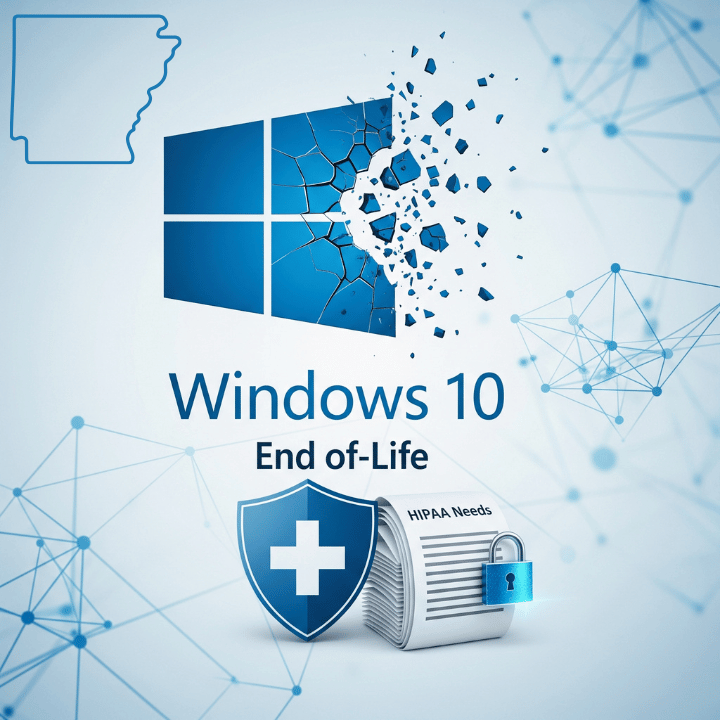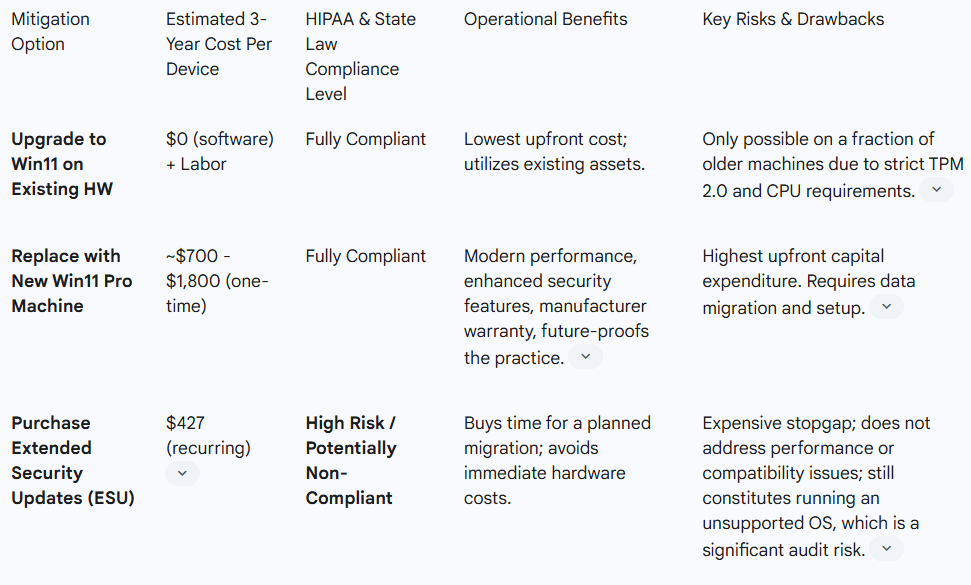Oasis Medical Solutions Article
July 25, 2025
The 2025 Compliance Mandate
An Arkansas Practice's Guide to Windows 10 End-of-Life, HIPAA, and State Law
For independent healthcare practices across Arkansas, from the Ozarks to the Delta, the mission is to provide quality patient care. But a critical technological deadline is approaching that demands your immediate attention. On October 14, 2025, Microsoft will officially end support for Windows 10, the operating system running on computers in clinics throughout the Natural State.
This isn't just an IT issue for large hospital systems in Little Rock or Fayetteville. For a small or rural practice, this event has profound consequences for your cybersecurity, operational stability, and your legal standing under both federal HIPAA regulations and Arkansas state law.
This guide is written specifically for you—the practice owners, office managers, and dedicated staff of Arkansas—to provide a clear, actionable plan to protect your patients, your business, and your peace of mind.






